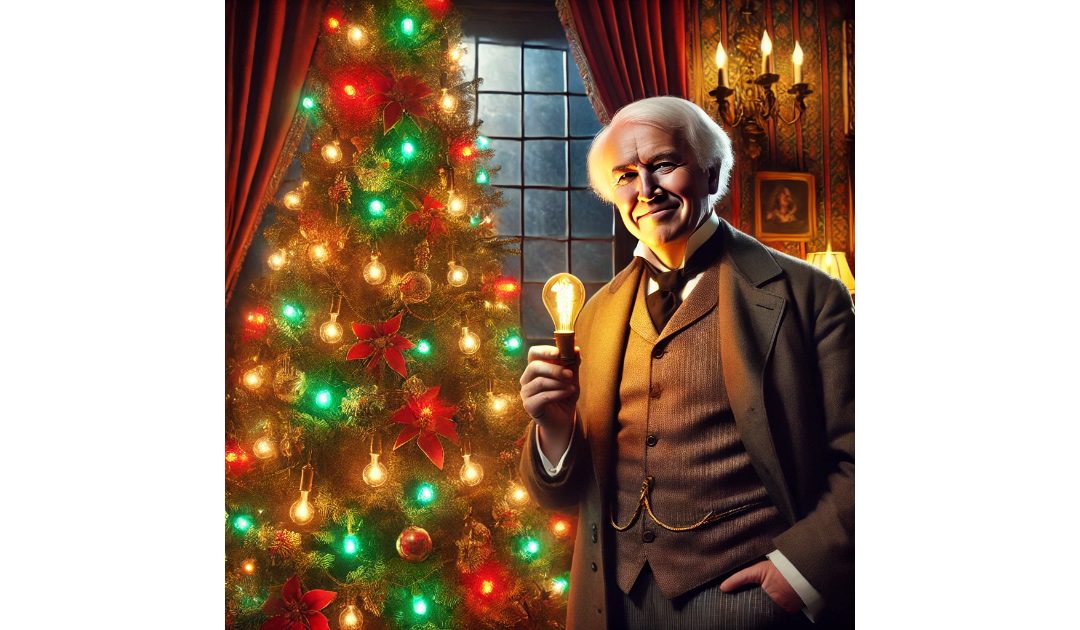I have posted about inventors and inventions before. You may, like me, be sitting near a Christmas tree bedecked with baubles and a string or two of electric fairy lights. On the 22nd of December 1882 Thomas Edison created the first string of electric Christmas tree lights. He must be the most prolific inventor we have known so far.
Thomas Edison (1847–1931) was a prolific American inventor and entrepreneur whose innovations transformed modern life. Known as the “Wizard of Menlo Park,” Edison held over 1,000 patents and developed groundbreaking technologies in fields ranging from electric power to communication and entertainment. Born in Milan, Ohio, and largely self-taught, he demonstrated an early interest in science and engineering.
Edison’s most famous invention is the practical electric light bulb. While he didn’t invent the bulb itself, he refined the technology by creating a long-lasting filament and an entire system of electric power generation and distribution. In 1879, he unveiled his bulb, and by 1882, he established the world’s first electric power grid in New York City. This achievement revolutionized lighting and powered the industrial era.
Thomas Edison also played a significant role in sound recording and motion pictures. In 1877, he invented the phonograph, a device that could both record and play back sound, which laid the foundation for the modern music industry. He further advanced entertainment technology by developing the kinetoscope, an early motion picture viewer, and contributed to the establishment of the film industry.
Another major invention was the carbon transmitter, which improved telephone technology by amplifying sound, making communication clearer over long distances. His work in the electric sector also included contributions to the development of batteries, generators, and electric railway systems.
Edison’s approach to invention was systematic and entrepreneurial. At Menlo Park and later West Orange, he created some of the world’s first research laboratories, employing teams of engineers and scientists to collaborate on innovations. His work ethic, famously captured by his quote “Genius is one percent inspiration and ninety-nine percent perspiration,” set the standard for modern industrial research.
While the contributions of Thomas Edison were monumental, his career was not without controversy. He engaged in fierce rivalries, such as the “War of the Currents” with Nikola Tesla and George Westinghouse over AC versus DC power. Edison championed direct current (DC), but Tesla’s alternating current (AC) ultimately became the dominant standard.
Edison’s impact extends far beyond his inventions. He redefined how innovation was organized and commercialized, turning scientific breakthroughs into practical products. His work illuminated the modern world, making him one of history’s most influential inventors and entrepreneurs.

